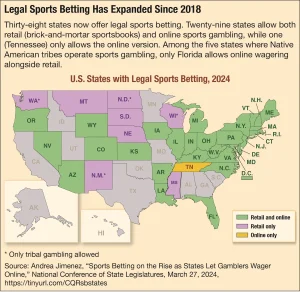What Regulators Will Do to the Online Gambling Industry?

The online gambling industry is growing at a rapid pace. This exponential growth has also brought with it the increased regulatory scrutiny in regulated markets as well, including anti-money laundering.
ISS ESG has done extensive research on this and has discovered best practices currently in use by regulators worldwide: Automated KYC (Know Your Customer), risk assessment for verification and identity; and AI-powered age and identity verification services.
Legality
The world of online gambling can be an enormously lucrative industry for states to rake in hefty taxes from them and use it for public services and infrastructure that enhance the lives of citizens. But there is a downside to online gambling; for instance, poor gambling behaviour on the part of low-income consumers.
The legality of online gambling is an unassailable issue for governments across the world, who try to negotiate between its merits and the dangers of recruitment of illegal players and money laundering. Online casinos require licensing and compliance regulations from many countries – however these vary globally.
Legality of Internet gambling can vary depending on factors like distance, and jurisdiction. In the US, for instance, the Unlawful Internet Gambling Enforcement Act (UIGEA) forbids banks from settling illegal-site payment for legal-site bets – decreasing investment dollars flowing into casino sites and disrupting financials.
Regulations.
Definite controls will safeguard players and maintain iGaming’s integrity including extensive software testing and anti-money laundering procedures, and operators will report any suspicious activities to regulators. Moreover, strong laws also discourage problem gambling and promote responsible gambling.
Other compliance aspects might include meeting gender equality and minority representation legislation within the industry, regulations for loot boxes and other devices that provide virtual items to the user, or the reporting of operations such as bank statements and incidents.
Many jurisdictions also have further rules on online gambling with market implications, such as advertising bans on vulnerable populations or content bans on television and radio broadcasts, or access to a national register of individuals who have left legal gambling websites.
Safety.
Online gambling providers are expected to take precautions for their operations such as encryption and multi-factor authentication to protect the players’ personal and financial information from theft. : Employee compliance training will enable you to identify the signs of infraction very quickly.
Responsible gaming legislation is also an essential part of online casino operators. Casinos have to give responsible gambling features such as self-exclusion and limit deposits. And if there are some jurisdictions that require them to use random number generators to ensure fair play.
The regulators also act as benchmarks for the sector – promoting relationships between land-based regulators and sports organisations and iGaming ones, as well as providing clear rules on diversity initiatives in the industry and handling operational crises. Because iGaming involves such huge quantities of consumer information for whom hackers seek to hack, authorities have put in place compliance measures including age verification and affordability standards to protect it.
Security.
This is because the online gambling business processes so many confidential user data, it is a target for identity theft and cyber attack. It’s important to employ stringent KYC and AML controls like encryption and multi-factor authentication to safeguard users’ privacy and protect online casinos from Distributed Denial of Service attacks (DDoS) and other common security threats.
Other important security laws include the fair gaming regulations, responsible gambling tools, and data security. These measures are meant to make gambling safer and more open to players.
As credit card fraud and identity theft have grown to become more commonplace, security of customers’ information is paramount for any company. Gambling sites have to stay in line with PCI standards while deploying Web Application Firewalls (WAF) to manage traffic. This keeps only clean traffic coming to their casino site while helping to eliminate the risk of data breaches or attacks; WAFs also detect behavioural patterns that can indicate compromise or attack.







